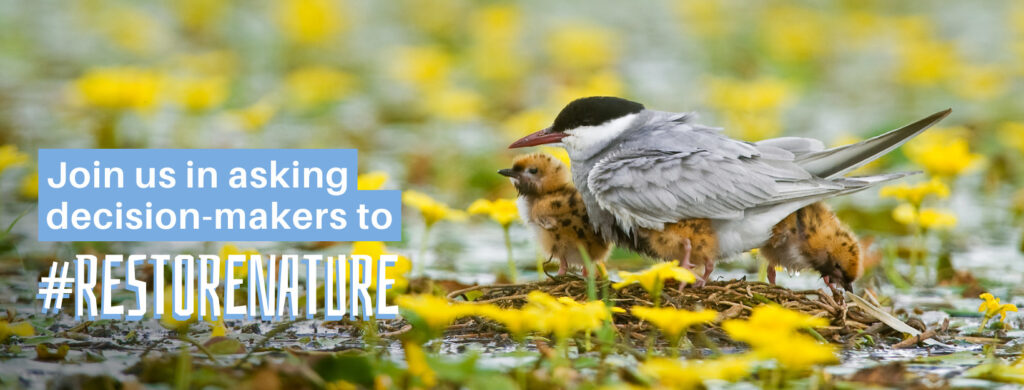During a recent visit to the Danube Delta, Frans Schepers – CEO of Rewilding Europe – witnessed the resilience of nature and people. Reflecting on his visit, he urgently calls upon our governments and representatives in Brussels to prioritise the enactment of the EU Nature Restoration Law. Immediate action is needed to harness the transformative power of rewilding and secure a better future.
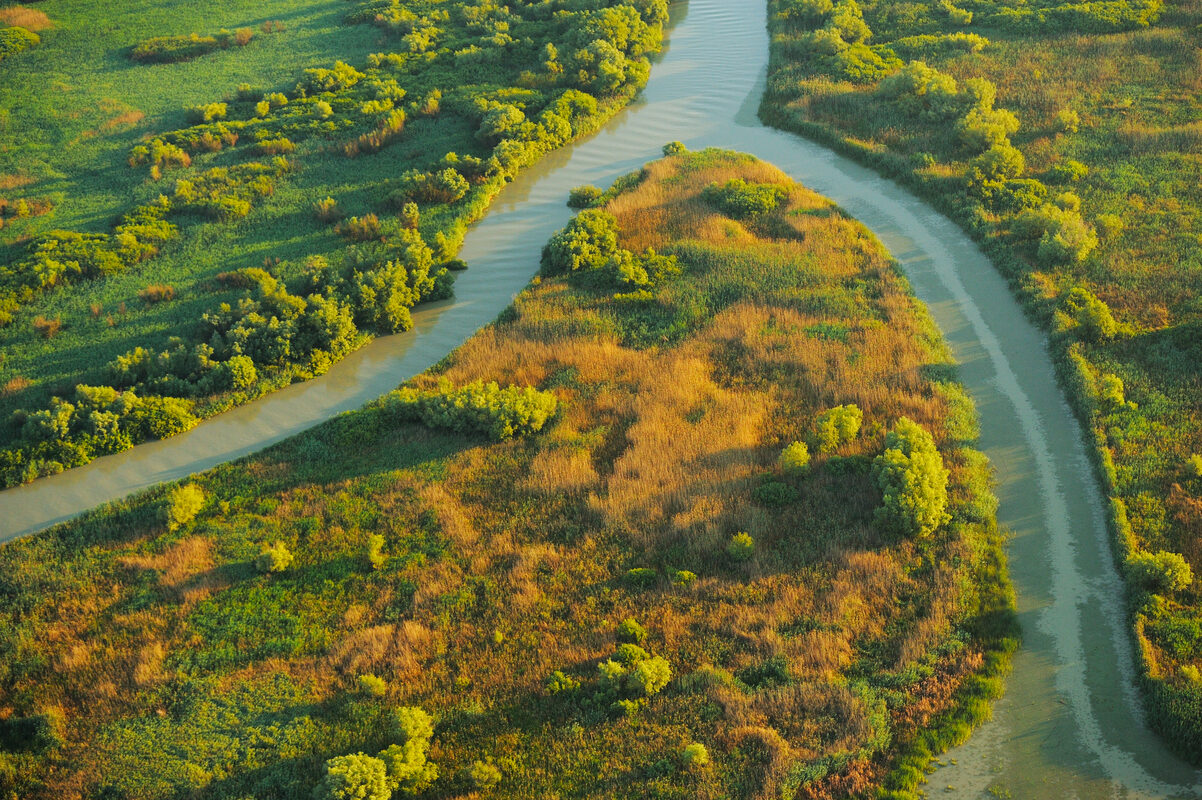
Witnessing rewilding impact
Last week, I had the incredible opportunity to visit the Romanian and Ukrainian parts of the Danube Delta, as well as the vast steppe landscape of the Budzhak plateau in southern Ukraine. Together with my colleagues from Rewilding Romania and Rewilding Ukraine, I was privileged to witness the rewilding efforts taking place, which are paving the way for a brighter future for both people and nature.
During our visit, it became evident that rewilding is reinvigorating the local Bessarabian and Danube cultures, fostering a reconnection between people and their surrounding land and wetlands. Local communities, authorities, local businesses and NGO’s are working hand in hand to restore natural processes in these landscapes, enhancing climate resilience and bringing new perspectives for local people.
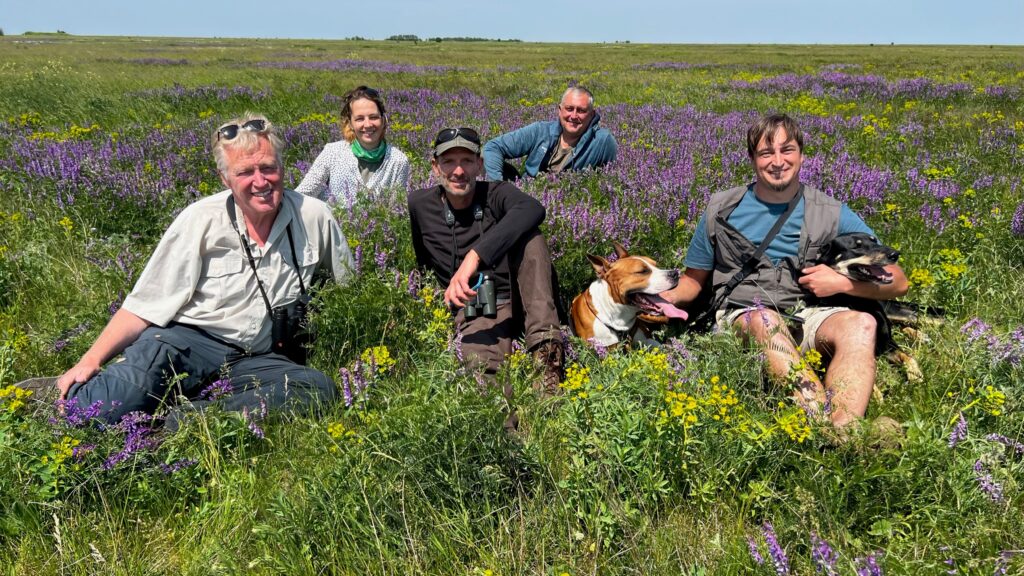
Nature’s resilience
It had been many years since my last visit to Ukraine. It is impressive to see how much progress has been made in the restoration of wetlands and steppe over the past two decades and even in the face of the challenging circumstances posed by the ongoing war.
One of the most striking achievements I observed, was the revival of steppe vegetation in areas that had been illegally ploughed. It was heartening to see the resilience of nature as the once barren landscapes bloomed with the resurgence of vibrant steppe flora and the reintroductions of species like steppe marmot, hamster and kulan.
The rewilding of the Tarutino steppe stands out as an extraordinary example of collaborative efforts. With an area now exceeding 6,300 ha, it has the potential to become one of Europe’s largest steppe reserves of over 15,000 ha. The revitalization of this vast landscape is breathing new life into this landscape.
Despite the challenges faced, the dedication and determination of those involved in the rewilding actions are truly commendable. The strides made in Ukraine’s restoration efforts demonstrate the power of collective action and highlight the potential for even greater accomplishments in the future.
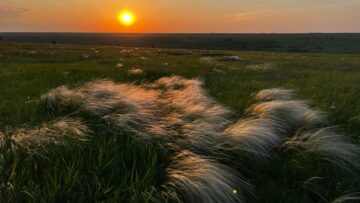
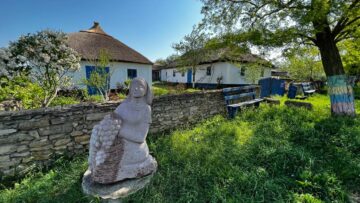
Reconnecting waterways
At an official event, together with local water authorities and community representatives, we successfully restored the natural water flow connection between the Danube River and the giant Katlabuh Lake. By reopening a channel, the lake can once again follow the dynamic water patterns of the Danube. This is critically important as this improves water quality, enhances fish populations, rewets large areas of marshland that were drying up, captures huge amounts of carbon, and ensures water availability for the surrounding villages that depend on this large lake.
During our journey along the Danube, we visited the 2,300-hectare large Ermakov Island, where dykes were removed 15 years ago, and the Kyslytsia channel re-opened more recently, restoring a 1500-hectares marshland and reconnecting it with the Danube again. On both sides of the border, we met the directors of the transboundary Danube Delta Biosphere Reserve and discussed future ambitions for restoring the Danube wetlands – for which there is huge potential.
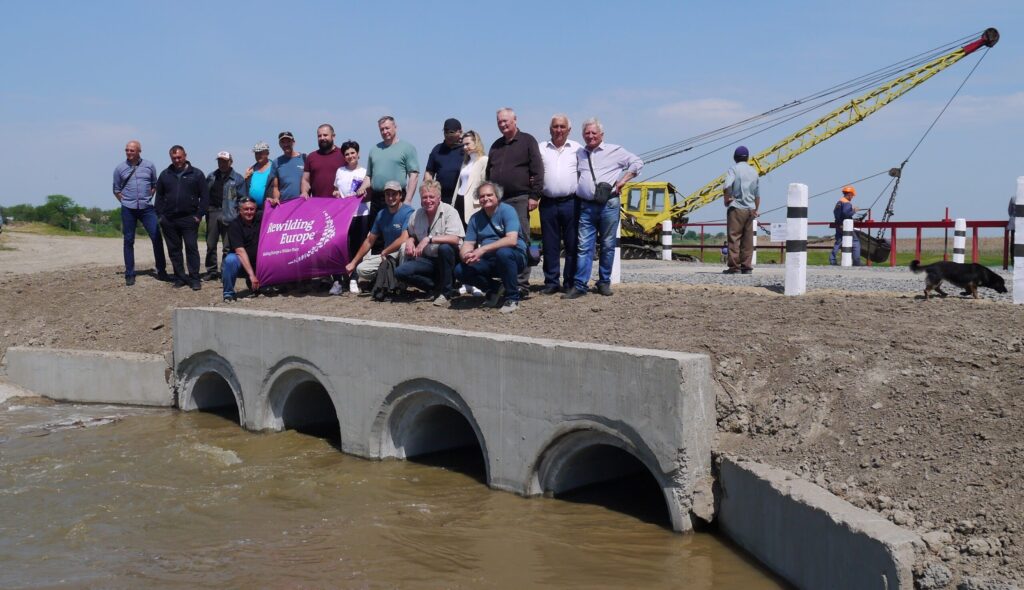
Large-scale nature recovery as a solution
The contrast could not have been more striking when considering the ongoing discussions among decision-makers that are taking place right now about the EU Nature Restoration Law, a key component of Europe’s Green Deal. This significant legislation law would legally require EU member states to bring nature back to Europe, which would make a huge difference not only for our degraded ecosystems but also for our health and well-being, economy, and climate. It would significantly amplify the remarkable efforts I witnessed during my trip further across Europe.
It is widely recognized that nature in Europe is not doing well. In fact, a recent report by the European Environmental Agency revealed that over 80% (!) of our EU-protected habitats is in bad condition. At this very moment – and it’s not even summer yet – there are devastating droughts across the European continent.
However, there is reason for hope amidst these concerns. As my visit to the Danube region vividly demonstrated, we have a solution at hand to reverse this alarming trend: large-scale nature recovery. Not only is it an effective strategy, but it also offers significant cost benefits: every euro we invest in nature recovery, yields a return between 8 and 38 euros, as the European Commission recently calculated.
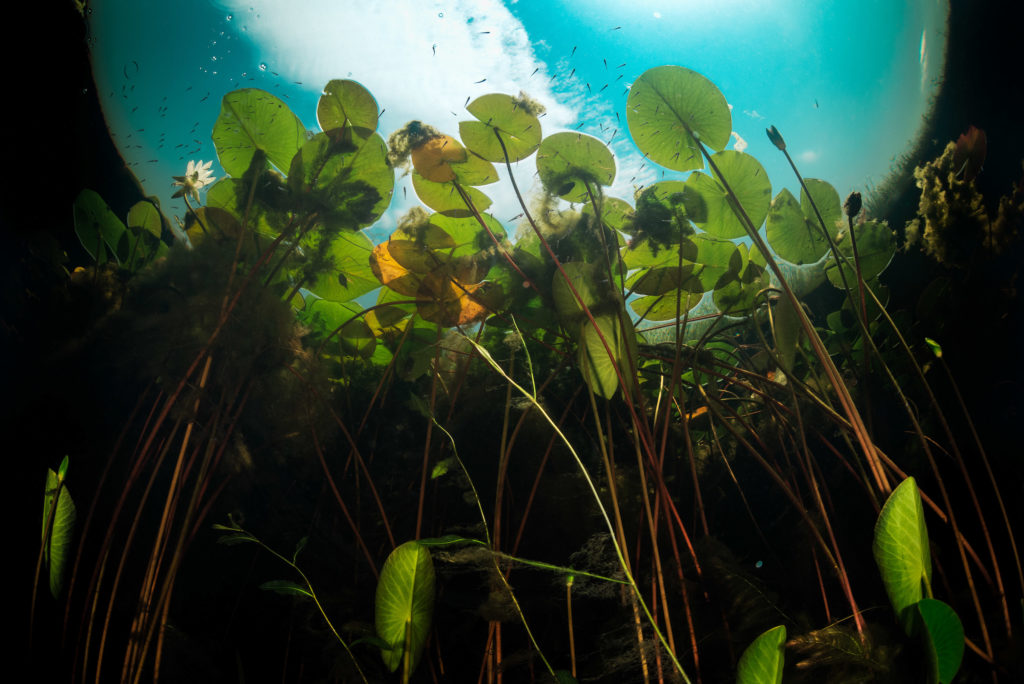
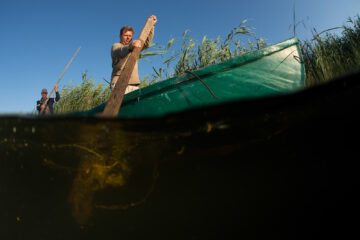
A call for courage
Regrettably, some politicians are completely ignoring the consequences of nature loss and the impacts of climate change on our society. They are determined to undermine the first European law that can make Europe more resilient to droughts, floods and fires, without offering any viable alternative. In early May, the European People’s Party (EPP) recently rejected the Nature Restoration Law proposal, undermining our best chance to combat the biodiversity and climate crises. It is scandalous that individuals like members of this party, and with them others, are spreading a false narrative that restoring nature would lead to people starving.
This framing is not only wrong but also absurd. Nobody wants people to starve from hunger. On the contrary, healthy nature is a condition for food production. It is industrial agriculture that causes huge biodiversity loss, soil degradation, water scarcity, high carbon and nitrogen pollution, loss of pollinators, the emergence of zoonotic diseases and thus negatively affects the health and well-being of people. Our food security is at risk due to the practices of this very sector.
Decades of weak policies, neglecting the issues, lingering on, relying on voluntary regulations, and seeking technical solutions have brought us to the dire situation we find ourselves in today. To turn the tide, we need courage and long-term thinking. Rewilding offers a promising solution to recover nature in Europe on a large scale, by creating the right conditions for nature to restore itself.
Transformative power of rewilding
During my visit, I witnessed the transformative power of rewilding, particularly through actions such as removing dykes and dams to restore expansive wetland areas. By living in harmony with our native and iconic wildlife, supporting their comeback, creating climate-resilient forests, and strictly protecting our precious wild places, we can make a significant difference.
As I reflect on my visit, I am filled with optimism for the continued success of rewilding the Danube Delta and Budzhak steppe landscapes. It is a testament to the resilience of both nature and the human spirit, reminding us of the transformative power of rewilding efforts.
I urgently call upon our governments and representatives in Brussels to deliver the EU Nature Restoration Law. The time to act is now, rather than tomorrow.
Frans Schepers
Executive Director
Rewilding Europe

